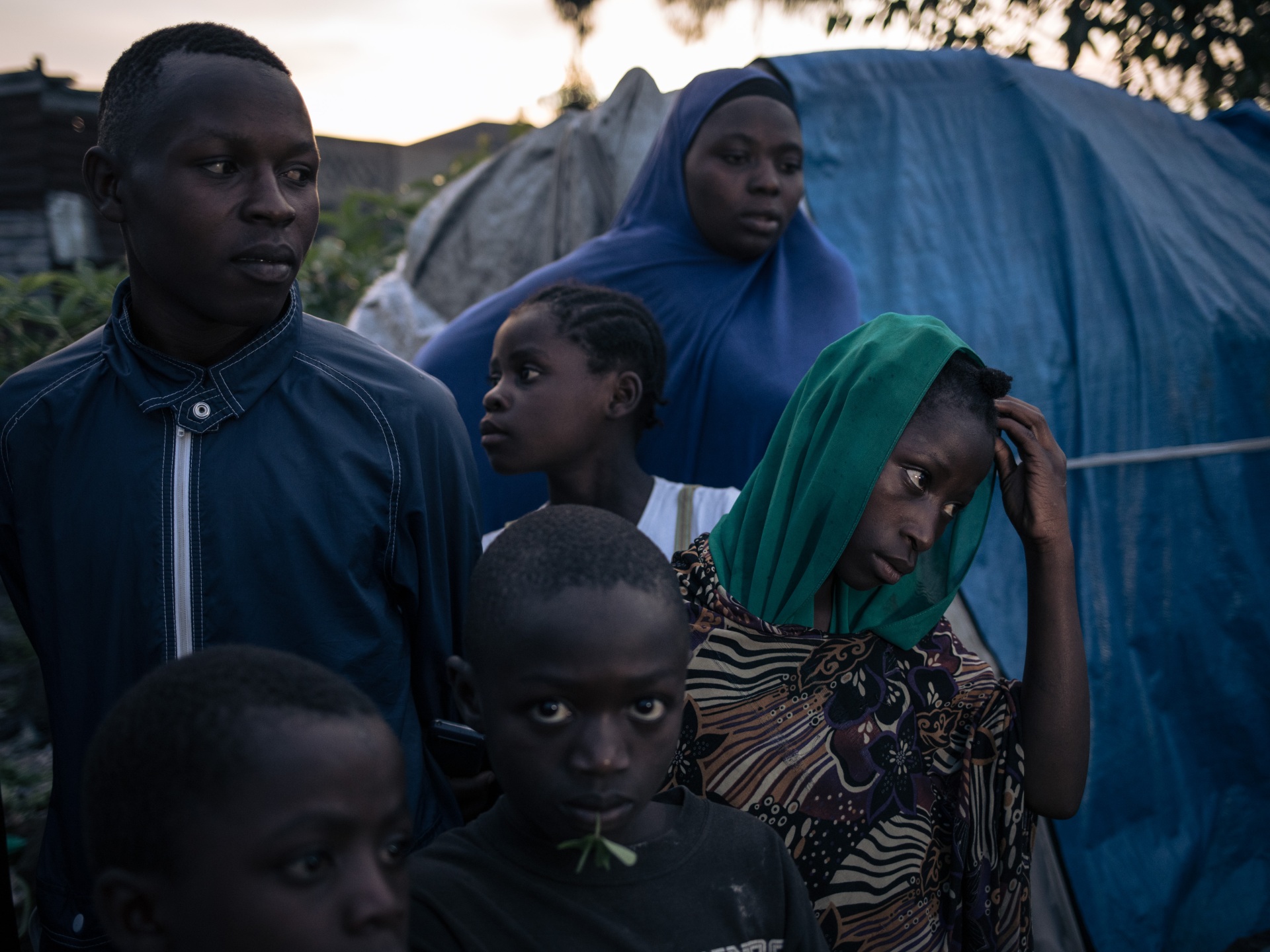It is a difficult Ramadan for hundreds of Muslims displaced by the deadly violence in the eastern Democratic Republic of Congo (DRC).
Some 500 Muslims are cramped together in makeshift huts in the displaced persons’ camp in the town of Munigi. Most of them have little access to food and water. They are among nearly one million people displaced since fighting between M23 rebels and government forces erupted last year.
The mosque, a small clapboard building, serves many of the worshippers who break their Ramadan fast in the camp, situated on a lava-strewn field just 10km (6 miles) from the front lines.
“The first ones arrived nearly a year ago,” said Ali Assani Mukamba, the local imam, speaking of Muslim displaced people.
Walking through the mass of tiny huts built hastily on the field of volcanic rock, he explains that one of the biggest problems is a lack of fresh water.
“To wash before prayer, we’re sometimes forced to rub ourselves with dust or mud,” Mukamba said.
As night falls, Muslim worshippers pass around a platter of rice and beans while a pale bulb comes on to light up their mosque.
‘Killed by the M23’
Abda Juma Buranga, one of the Muslim elders in the camp, said they are only able to eat their iftar meal — which breaks the fast — because of charitable donations.
He fled his native village of Kibumba, less than 20km (12 miles) from the camp, when M23 fighters launched an attack last November.
“I lost 25 members of my family, cousins, aunts, nephews,” the 65-year-old said.
“They were all killed by the M23”.
The Muslim community in Munigi makes up a tiny part of the huge number of people who have fled the M23 in the DRC’s North Kivu province.
This month, the International Organization for Migration said the crisis has displaced almost 900,000 people.
The M23 first came to international prominence when it briefly captured North Kivu’s capital Goma in 2012 before being driven out.
The rebels took up arms again in late 2021 after years of dormancy on claims that the government had ignored a pledge to integrate its fighters into the military.
The M23 has since captured swathes of territory in North Kivu and is now threatening to cut off the roads leading to Goma, a trade hub of more than one million people.
‘We’re suffering’
“In 2012, I didn’t flee when the M23 arrived,” said Aisha Furaha, sitting on a rock in Munigi camp with her head bent low.
The M23 returned “with more brutality” during its second campaign, according to the 40-year-old woman.
The rebels had threatened to loot and kill, Furaha said, adding that she and her 10 children had fled their home under a hail of gunfire.
Now, Furaha and her family sleep on the ground in a hut in Munigi, where she said there is not enough room for everyone.
M23 fighters are still in position across North Kivu and on hilltops near Goma.
According to reports by independent experts for the UN Security Council, Rwanda is backing and equipping the rebels. Kigali denies the claim.
Abda Juma, the Muslim elder in Munigi, said he wanted the international community to force Rwandan President Paul Kagame to withdraw the M23.
“We’re suffering a lot,” he said.
